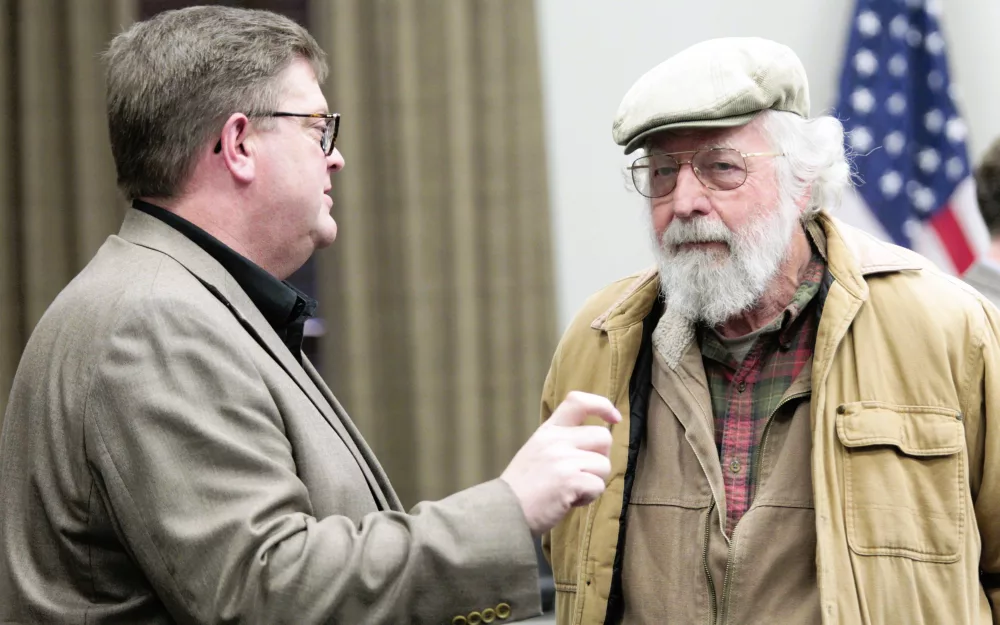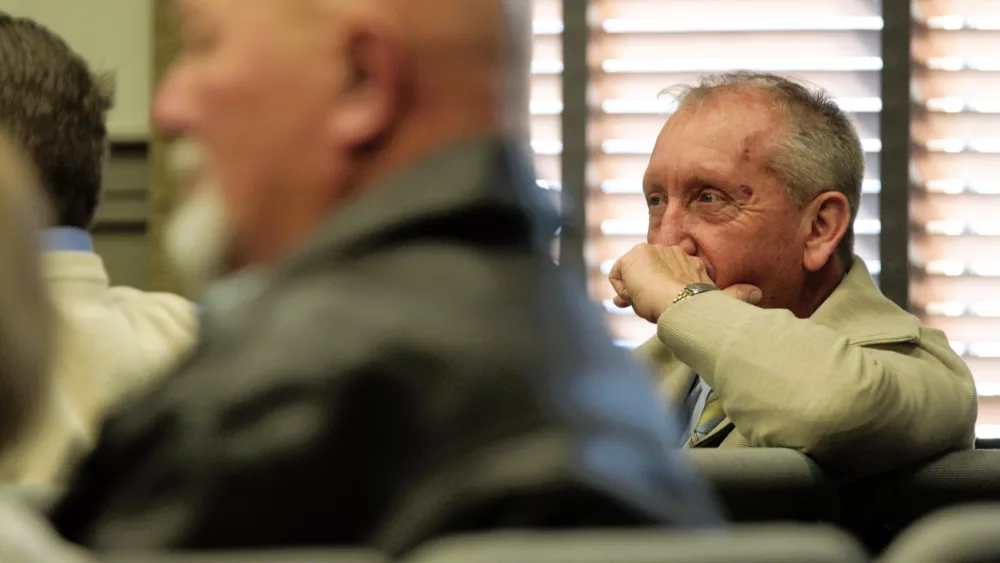
Considered one of the major forces behind the current biennium budget, and a co-chair of the state’s 2024-26 Budget Preparation & Submission committee, 16th District Representative Jason Petrie believes Kentucky is well-positioned for the move from a 4% income tax — down to 3.5%.
It’s this measured confidence in House Bill 1, and so much more, that he shared during Tuesday’s Town Hall in Hopkinsville’s City Municipal Center — a small crowd interested in the Commonwealth’s next moves for economic stability and mature market growth.
Moderated by Hopkinsville CPA and Rotarian Cody Noffsinger, Petrie said with each percentage point removed from the income tax, already down from 6%, another $1.37 billion goes back into the hands of the population, where they can decide what’s best for themselves, their families and their businesses.
In order for these annual half-percentage-point benchmarks to be met, Petrie said the closed fiscal years must be certified outside of the House and Senate, while still meeting the needs of the state’s required spending.
More correctly termed as Kentucky’s “budget reserve trust account,” Petrie also said the “rainy day” fund operated in the negative four separate years during a stretch between 2000 and 2016.
Now, behind a true emphasis on a real living-and-breathing budget, and some federal appropriations, the Commonwealth has between $5.2 billion and $5.5 billion in reserves — lifting the state from one of the nation’s worst credit ratings and backup plans, to one of the best.
Petrie said even now, there is “space in the budget” to get down to 2%, but it must be done timely, economically and effectively, particularly as ratios moderate.
As for economic development, Petrie is more than aware that more jobs means more tax base in Kentucky, and he’s seen plenty of new careers come to south western Kentucky since 2017 — thanks to infrastructure updates and other investments promoting perpetuity over promises.
The bigger concern, he added, is workforce participation — which currently sits below 58% in the state.
To him, and many other of the state’s leaders, this is a very complex subject: one that requires conversations about incarceration and second-chance employment, early child care, career development, skills training and post-secondary education, and the general manifesting of a desire to work.
But he noted even more considerations must be made, particularly in eastern Kentucky, where jobs in health care and education are plenty, but geography and topography don’t allow much else.
Petrie also noted that the state’s budget already provides massive appropriations to education K-12, as well as post-secondary supports, but any discussions about universal pre-K — a major push from some constituents — need to take considerations on the rotations around first-, second- and third-shift businesses and employees, as well as the notion that all 120 counties could currently support such a measure.
Pre-K school, he added, typically operates during the day — leaving late-evening and overnight care options still up to parents.


FULL AUDIO:






